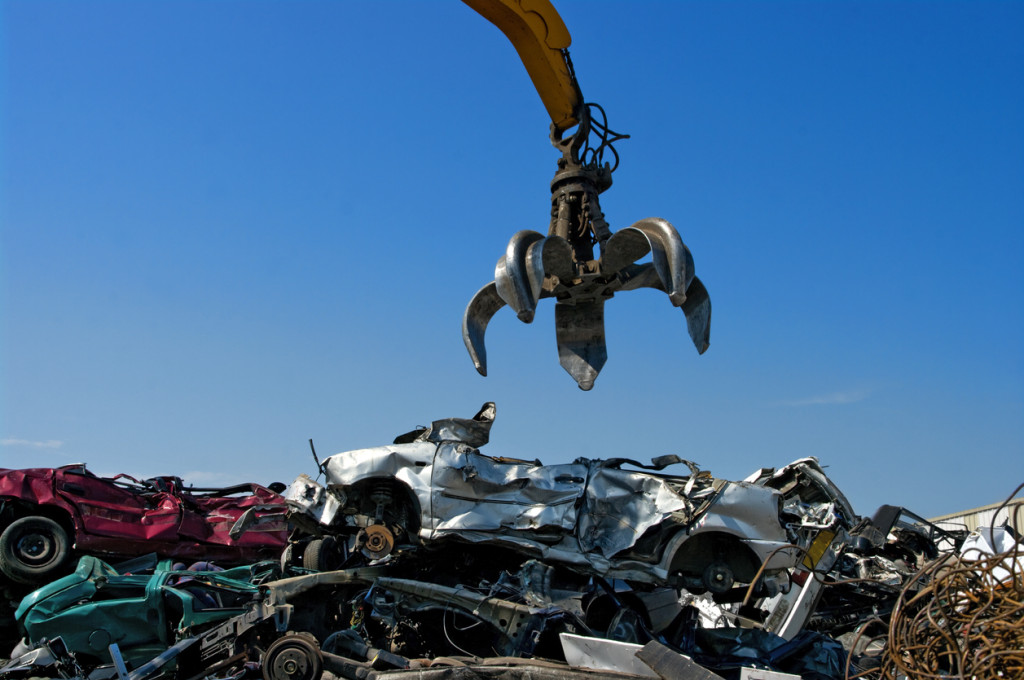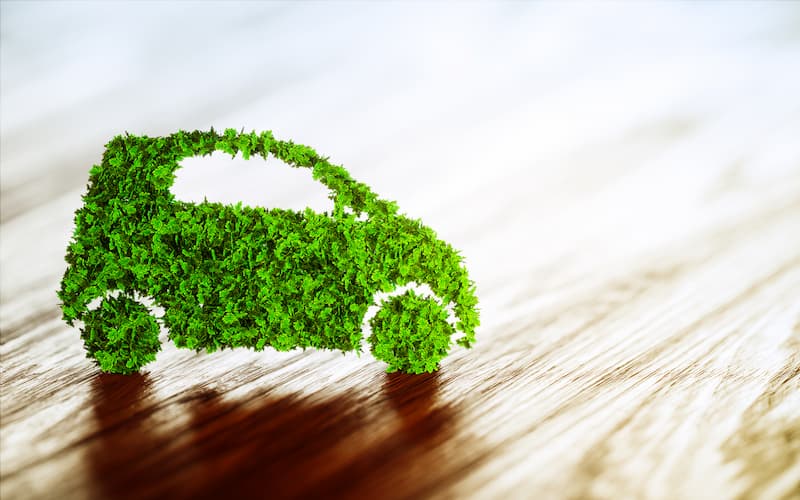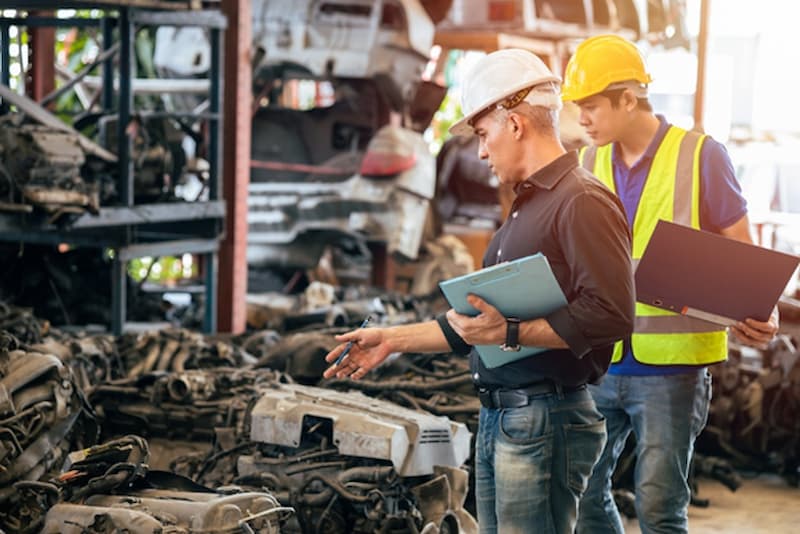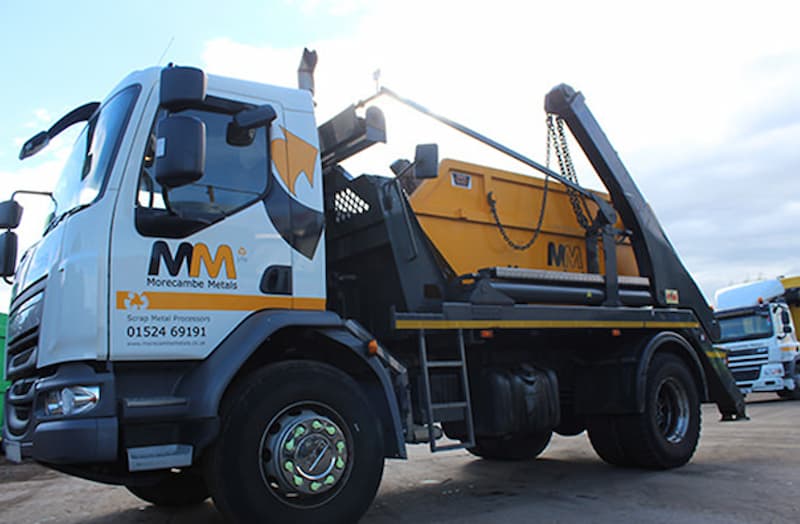If you own an end-of-life vehicle (ELV) that is no longer roadworthy, you may wonder what to do with it. While it may seem like a burden to dispose of your ELV, it can be a valuable resource if appropriately managed. Read on to discover the stages of depollution, recycling, and disposal and how our methods ensure the most out of your ELV; sustainably, legally, and financially.

What Is ELV Depollution?
Depollution is a required part of disposing of an ELV within standard regulations. Depolluting an ELV involves removing many parts and hazardous elements and separating them from the vehicle as a whole to be dealt with individually; these include the following:
- Hazardous fluids: All fluids, such as oil, fuel, brake fluid, power steering fluid, and coolant, are drained and collected for proper, safe disposal or recycling.
- Vehicle batteries: Lead-acid batteries must be removed and recycled, containing hazardous substances such as lead and sulfuric acid.
- Wheels and Tyres: Tyres are removed from the wheels and sent for recycling or disposal, as they can be challenging to break down and must be dispatched to separate recycling facilities.
- Mercury switches: Mercury switches are not used anymore but are commonly found in older vehicles; they are removed and recycled as they contain a highly toxic substance harmful to the environment.
- Airbags: These are removed and sent for proper disposal or recycling, as they can be explosive and contain hazardous substances.
- Catalytic converters: Catalytic converters are removed and sent for specialised recycling as they contain precious metals such as platinum and palladium.
- Ozone-depleting substances: Air conditioning systems and refrigerant gases that harm the environment are safely contained and extracted for disposal, as they contain ozone-depleting substances.
Recycling ELVs to Protect the Environment
Making sure to depollute your ELV and recycle its parts is essential to support a more sustainable industry and help protect our environment. However, ELVs committed to a landfill are a harmful waste of potentially valuable materials, some of which will have toxic by-products that will contaminate the environment. Vehicle parts, such as batteries, electrical components and more, contain hazardous substances such as lead, mercury, and cadmium, which will pollute the local area if abandoned.
Not recycling ELVs will contribute significantly to the greenhouse gas emissions we must avoid. As these vehicles are left to degrade and decompose over decades, they will contribute to the harmful gas build-up commonly affecting landfill, including one of the most harmful, methane gas. Methane gas is 84 times more effective in absorbing the sun’s heat than carbon dioxide; this makes methane gas one of the most potent contributors to climate change. This and many other reasons are why it’s vital to correctly dispose of your ELV with our depollution methods as part of our scrap metal services to protect the environment from these harmful elements.
Save Energy and Expenses
Fortunately, these problems are easily solved by an end-of-life vehicle recycling service that will safely and sustainably dispose of these materials. Additionally, common materials in ELVs, such as copper, aluminium, and steel, can be extracted and used for new vehicles, reducing the amount of new material that needs to be mined from the environment. For example, the energy needed to mine new ores is considerably higher than the level required for recycling. Processing used metal can save around 92% of energy, about 90% for copper and 50% for mining and creating new steel.
In addition to its environmental benefits, depollution can also have financial benefits for ELV recyclers by increasing the value of scrap metal in cars. By recovering and recycling valuable materials, such as metals and plastics and the previously mentioned catalytic converters, from depolluted ELVs, recyclers can generate revenue and offset the costs of the recycling process. The depollution will also help to improve the quality of the recovered materials, making them more desirable to buyers and increasing their value.
The Importance of Using a Registered Scrap Metal Specialist
The registered professionals here at our facility adhere to stringent environmental regulations and guidelines for the secure handling, storage, and disposal of ELVs and their components. This ensures that the ELV recycling process is done in a way that is good for the environment, lowering the chance of pollution and other bad environmental effects.
Our team are expert in the depollution and reusing of ELVs, and we even have a purpose-built depollution rig that makes it a safe and efficient process. As a result, ELVs will be recycled and depolluted in a way that minimises environmental impact and maximises the recovery of valuable materials like metals and plastics.
By choosing a registered specialist such as us for your ELV recycling needs, you can be confident in the legal and ethical execution of the procedure. Registered specialists are subject to regular inspections and audits to ensure that they adhere to the law and comply with regulations regarding the traceability of ELVs and their components. Additionally, this also means that the
Our skills from decades of ELV disposal assist in maximising its financial value. We will work to get the greatest results from the supplied ELVs, both as far as income created and cost reserve funds related to the disposal and recycling of the elements.
Authorised Treatment Facility for ELVs
At Morecambe Metals, we offer highly effective vehicle recycling and depollution services for end-of-life vehicles. As an authorised treatment facility (ATF), we are your fast, cost-effective call for ELV depolluting and recycling that you can rely on to help preserve our environment.
We provide a certificate of destruction (CoD) for vehicles that are under three-and-a-half tonnes. This official DVLA document certifies that the disposal procedure was conducted correctly under the previously mentioned regulations and can be updated on the DVLA website.
Contact us online or call us directly on 01524 69191 to request a quote for your desired end-of-life vehicle recycling, and one of our friendly team members will get in touch.




